Proceedings of the 7th World Congress
on Electrical Engineering and Computer Systems and Science (EECSS'21)
July 29 - 31, 2021 | Prague, Czech Republic
Virtual Conference
The keynote information for the 7th World Congress on Electrical Engineering and Computer Systems and Science (EECSS'21) is as follows:
Plenary Speaker

Dr. Chris Williams
University of Edinburgh, UK
MVML'21 Plenary Speaker
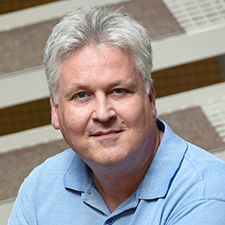
Dr. Sepp Hochreiter
Johannes Kepler University, Austria
MVML'21 Plenary Speaker
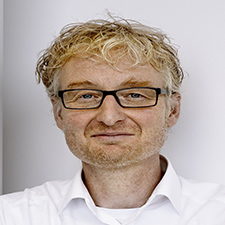
Dr. Max Welling
University of Amsterdam, Netherlands
MVML'21 Plenary Speaker

Dr. Rashid Bashir
University of Illinois, USA
ICBES'21 Plenary Speaker
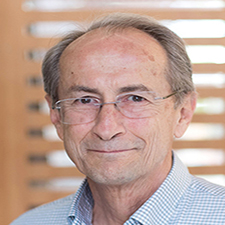
Dr. Dana Ballard
University of Texas at Austin, USA
MVML'21 Plenary Speaker
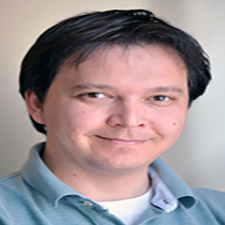
Dr. Ruslan Salakhutdinov
Carnegie Mellon University, USA
MVML'21 Plenary Speaker
Keynote Speaker

Dr. Kin K. Leung
Imperial College London, UK
CIST'21 Keynote Speaker
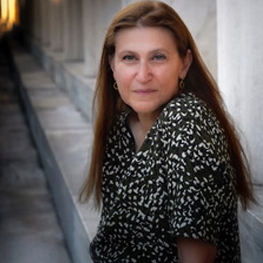
Dr. Sophia Ananiadou
University of Manchester, UK
CIST'21 Keynote Speaker

Dr. Yao-chun Shen
University of Liverpool, UK
EEE'21 Keynote Speaker
MVML'21 Plenary Speaker

Dr. Chris Williams
University of Edinburgh, UK
MVML'21 Plenary Speaker
Chris Williams is Professor of Machine Learning and Director of Research in the School of Informatics, University of Edinburgh. His main areas of research are in visual object recognition and image understanding, models for understanding time-series, AI for data analytics, unsupervised learning, and Gaussian processes. He obtained his MSc (1990) and PhD (1994) at the University of Toronto, under the supervision of Geoff Hinton. He was elected a Fellow of the Royal Society of Edinburgh in 2021, is a Fellow of the European Laboratory for Learning and Intelligent Systems (ELLIS), a Turing Fellow at the Alan Turing Institute (UK), and was program co-chair of the NeurIPS conference in 2009.
Topic of Plenary:
Towards Automating the Data Analytics Process
MVML'21 Plenary Speaker

Dr. Sepp Hochreiter
Johannes Kepler University, Austria
MVML'21 Plenary Speaker
Sepp Hochreiter is heading the Institute for Machine Learning, the LIT AI Lab and the AUDI.JKU deep learning center at the Johannes Kepler University of Linz and is director of the Institute of Advanced Research in Artificial Intelligence (IARAI). He is regarded as a pioneer of Deep Learning as he discovered the fundamental deep learning problem: deep neural networks are hard to train, because they suffer from the now famous problem of vanishing or exploding gradients. He is best known for inventing the long short-term memory (LSTM) in his diploma thesis 1991 which was later published in 1997. LSTMs have emerged into the best-performing techniques in speech and language processing and are used in Google’s Android, in Apple’s iOS, Google’s translate, Amazon’s Alexa, and Facebook’s translation. Currently, Sepp Hochreiter is advancing the theoretical foundation of Deep Learning, investigates new algorithms for deep learning, and reinforcement learning. His current research projects include Deep Learning for climate change, smart cities, drug design, for text and language analysis, for vision, and in particular for autonomous driving.
Topic of Plenary:
Modern Hopfield Networks
MVML'21 Plenary Speaker

Dr. Max Welling
University of Amsterdam, Netherlands
MVML'21 Plenary Speaker
Prof. Dr. Max Welling is a research chair in Machine Learning at the University of Amsterdam (AMLAB) and a VP Technologies at Qualcomm. He is a fellow at the Canadian Institute for Advanced Research (CIFAR) and at the European Lab for Learning and Intelligent Systems (ELLIS). Max Welling has served as associate editor in chief of IEEE TPAMI from 2011-2015 and is on the board of the NeurIPS foundation since 2015 and has been program chair and general chair of NeurIPS in 2013 and 2014 respectively. He was also program chair of AISTATS in 2009 and ECCV in 2016 and general chair of MIDL 2018. He is recipient of the ECCV Koenderink Prize in 2010. Welling is co-founder and board member of the Innovation Center for AI (ICAI) and the European Lab for Learning and Intelligent Systems (ELLIS). He directs the Amsterdam Machine Learning Lab (AMLAB), and co-directs the Qualcomm-UvA deep learning lab (QUVA), the Bosch-UvA Deep Learning lab (DELTA) and the Amsterdam ELLIS Unit.
Topic of Plenary:
How Can Machine Learning Help Computer Vision in the Next Decade?
ICBES'21 Plenary Speaker

Dr. Rashid Bashir
University of Illinois, USA
ICBES'21 Plenary Speaker
Rashid Bashir is currently the Dean of Grainger College of Engineering, the Grainger Distinguished Chair in Engineering, and Professor of Bioengineering at the University of Illinois at Urbana-Champaign. He was member of the core founding team and co-chair of the inaugural curriculum committee for the Carle-Illinois College of Medicine, the world’s first engineering based College of Medicine at the University of Illinois at Urbana-Champaign. He has previously been at Purdue University and at National Semiconductor Corporation. He has held a visiting Scientist position at Massachusetts General Hospital and Shriner’s Hospital for Children, and was Visiting Professor of Surgery at Harvard Medical School, Cambridge, MA. He was the recipient of the Joel and Spira teaching Award, the NSF Faculty Early Career Award and the IEEE EMBS Technical Achievement award. In 2018, he received the Pritzker Distinguished Lectureship Award from BMES. His research group is interested in developing new diagnostic technologies for precision and personalized medicine, and in 3D bio-fabrication of cellular systems. Using bionanotechnology, BioMEMS, and lab on chip, he is working at the interface of biology and engineering from the molecular to the tissue scale, and aiming to make an impact on grand challenges in infectious disease, sepsis, cancer, and others. He has authored or co-authored over 250 journal papers and has been granted 50 patents. Technology from his group has been licensed to multiple startups and larger companies.
Topic of Plenary:
Forward Engineering of Multi-cellular Engineered Living Systems
MVML'21 Keynote Speaker

Dr. Dana Ballard
University of Texas at Austin, USA
MVML'21 Keynote Speaker
Dana Ballard received his PhD from the University of California, Irvine, in 1974. His main research interest is in computational theories of the brain with emphasis on human vision and motor control. Currently Ballard is interested in pursuing this research by using high DOF models of humans’ natural behavior in virtual reality environments.
Topic of Plenary:
The Use of Gaze in Human and Machine Vision
MVML'21 Plenary Speaker

Dr. Ruslan Salakhutdinov
Carnegie Mellon University, USA
MVML'21 Plenary Speaker
Russ Salakhutdinov is a UPMC Professor of Computer Science in the Department of Machine Learning at CMU. He received his PhD in computer science from the University of Toronto. After spending two post-doctoral years at MIT, he joined the University of Toronto and later moved to CMU. Russ’s primary interests lie in deep learning, machine learning, and large-scale optimization. He is an action editor of the Journal of Machine Learning Research, served as a program co-chair for ICML2019, served on the senior programme committee of several top-tier learning conferences including NeurIPS and ICML. He is an Alfred P. Sloan Research Fellow, Microsoft Research Faculty Fellow, Canada Research Chair in Statistical Machine Learning, a recipient of the Early Researcher Award, Google Faculty Award, and Nvidia’s Pioneers of AI award.
Topic of Plenary:
From Differentiable Reasoning to Self-supervised Embodied Active Learning
CIST'21 Keynote Speaker

Dr. Kin K. Leung
Imperial College London, UK
CIST'21 Keynote Speaker
Kin K. Leung received his B.S. degree from the Chinese University of Hong Kong in 1980, and his M.S. and Ph.D. degrees from University of California, Los Angeles, in 1982 and 1985, respectively. He joined AT&T Bell Labs in New Jersey in 1986 and worked at its successor companies until 2004. Since then, he has been the Tanaka Chair Professor in the Electrical and Electronic Engineering (EEE), and Computing Departments at Imperial College in London. He serves as the Head of Communications and Signal Processing Group in the EEE Department at Imperial. His current research focuses on optimization and machine-learning techniques for system design and control of large-scale communication networks and computer infrastructures. He also works on multi-antenna and cross-layer designs for wireless networks.
He received the Distinguished Member of Technical Staff Award from AT&T Bell Labs in 1994, and was a co-recipient of the 1997 Lanchester Prize Honorable Mention Award. He was elected as an IEEE Fellow in 2001. He received the Royal Society Wolfson Research Merits Award from 2004 to 2009 and became a member of Academia Europaea in 2012. Along with his co-authors, he also received the IEEE ComSoc Leonard G. Abraham Prize (2021) and several best conference paper awards, including the IEEE PIMRC 2012, ICDCS 2013 and ICC 2019. He serves as a member (2009-11) and the chairman (2012-15) of the IEEE Fellow Evaluation Committee for Communications Society. He was a guest editor for the IEEE JSAC, IEEE Wireless Communications and the MONET journal, and as an editor for the JSAC: Wireless Series, IEEE Transactions on Wireless Communications and IEEE Transactions on Communications. Currently, he chairs the Steering Committee for the IEEE Transactions on Mobile Computing and is an editor for the ACM Computing Survey and International Journal on Sensor Networks.
Topic of Keynote:
Reinforcement Learning for Large-Scale Communications and Computer Infrastructures

Dr. Yao-chun Shen
University of Liverpool, UK
EEE'21 Keynote Speaker
Prof Yaochun Shen received his PhD degree from Nanjing University in 1992. After that he held various positions at Southeast University (China), Heidelberg University (Germany), Heriot-Watt University (UK), Cambridge University (UK) and TeraView Ltd (UK). Currently he is a Chair Professor at the Department of Electrical Engineering and Electronics, the University of Liverpool, UK. Professor Shen has many year’s experiences in the development and application of novel cross-sectional imaging technologies based on terahertz imaging and optical coherence tomography. He has been awarded 7 patents and published 5 book chapters and over 200 conference & journal papers with over 6845 citations and an h-index of 45 (Google Scholar). His current research interests include the development of innovative THz and optical imaging technologies with a focus on the exploitation of their practical real-world applications in industry and healthcare.
Topic of Keynote:
A Novel Optical Coherence Tomography for Non-Destructive Characterisation of Electrical-Thermal-Mechanical Deformation of Bonding Wires

Dr. Sophia Ananiadou
University of Manchester, UK
CIST'21 Keynote Speaker
Sophia Ananiadou is Professor of Computer Science at The University of Manchester. Her main research areas of research are Natural Language Processing and Text Mining applied in Biomedicine. She is the Director of the UK National Centre for Text Mining, a Turing Fellow, ELLIS member and Distinguished research fellow at the AI research centre (AIST Japan). Her research has covered: information extraction, scientific discourse analysis, emotion detection, automatic extraction of terminology for applications such as systematic reviews , semantic search, knowledge graph construction, pathway curation.
Topic of Keynote:
Natural Language Processing for Biomedicine